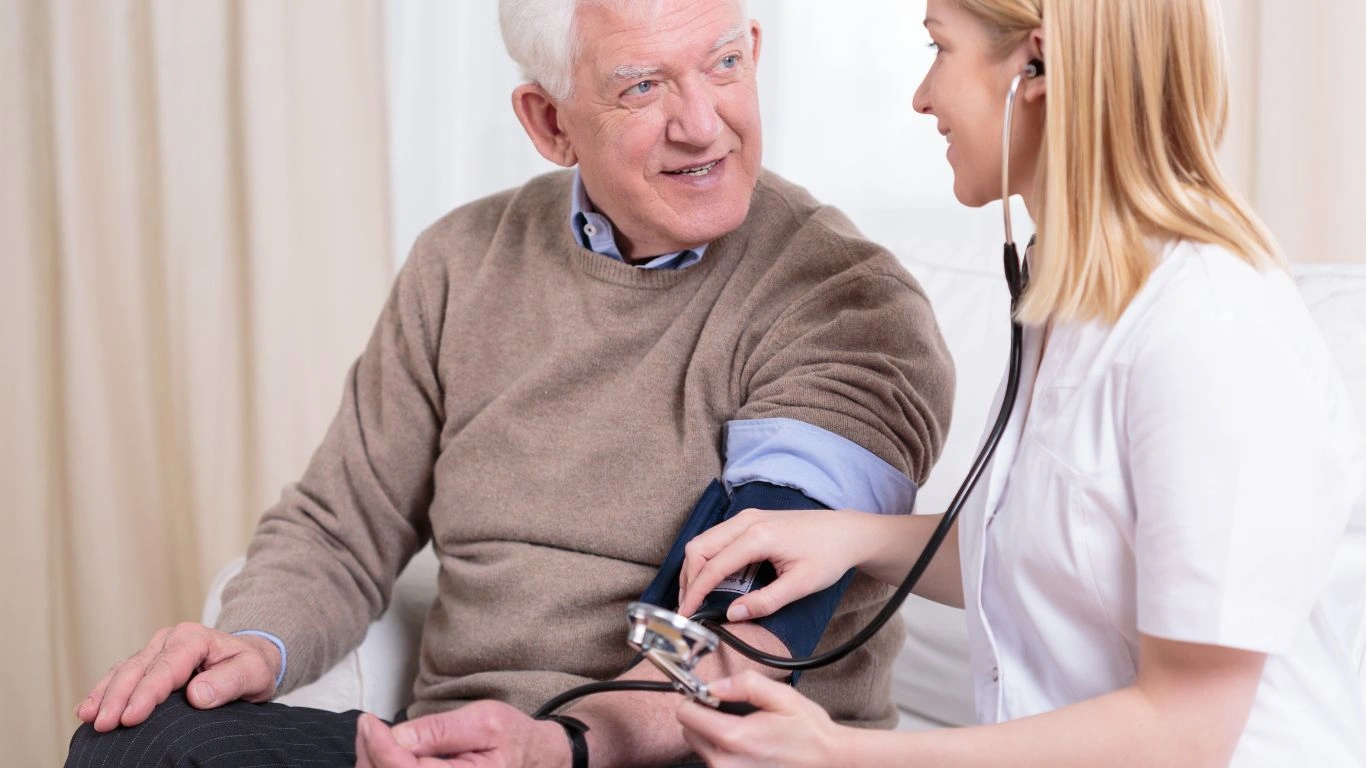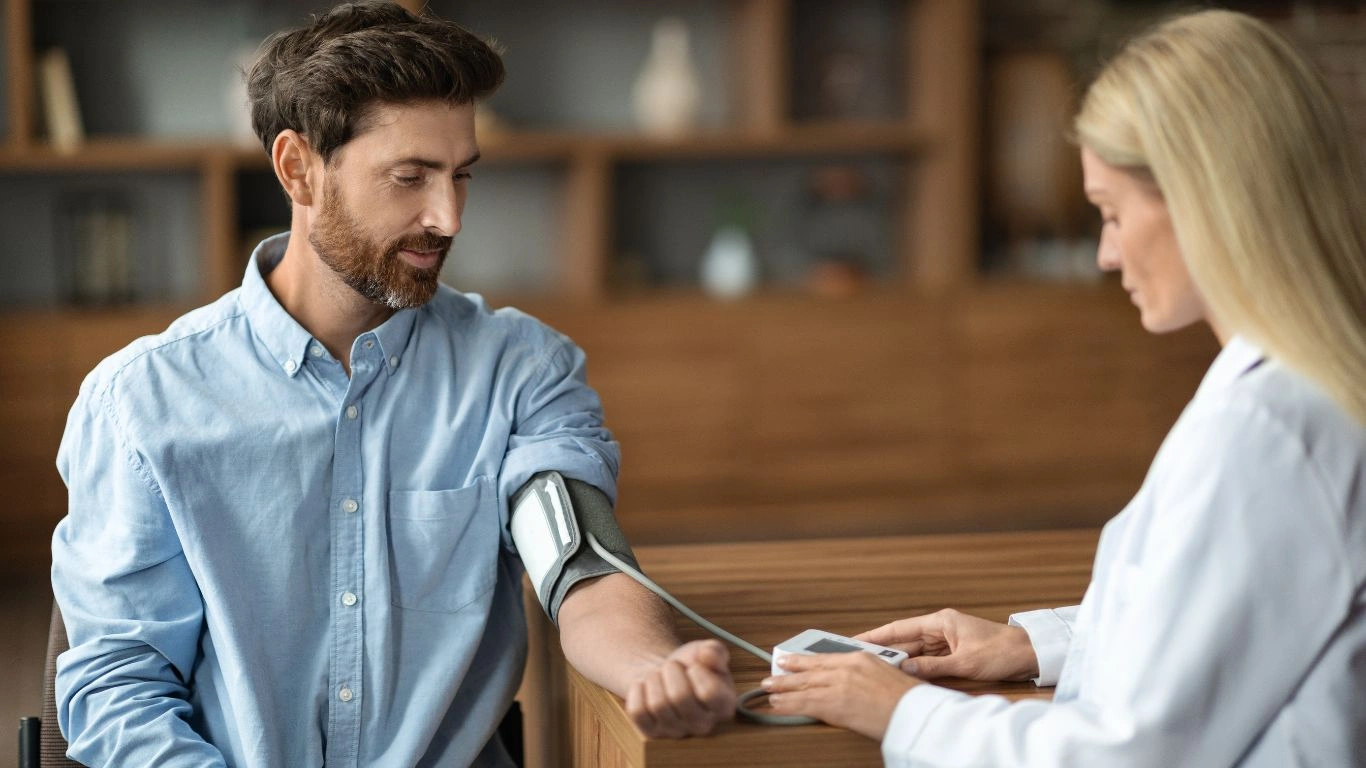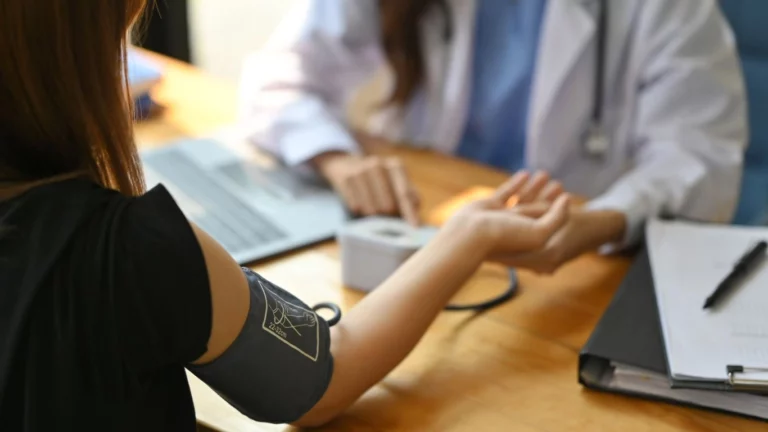Signs of High Blood Pressure Emergencies: What You Need to Know
High blood pressure, also known as hypertension, can be a silent killer, often without any symptoms. But in some cases, it can escalate into a dangerous emergency. Knowing the signs of a blood pressure crisis is crucial. Let’s break it down and go over what you should look for, when to get help, and what steps to take.
If you’ve ever been told your blood pressure is a little high, you’re not alone. In fact, a large portion of adults are dealing with some form of hypertension. But, not all high blood pressure is the same. In fact, things can escalate quickly into an emergency, which is why it’s important to know the signs of a blood pressure crisis. So, let’s dive into what those signs are and what you should do about them.

What Is High Blood Pressure?
Before we get into emergencies, let’s quickly talk about what high blood pressure is. Your blood pressure measures how hard your blood is pushing against the walls of your arteries as your heart pumps it around your body. When this pressure is too high, it can damage your arteries, leading to heart disease, stroke, kidney problems, and more.
High blood pressure often doesn’t show noticeable symptoms. That’s why it’s called the “silent killer.” Many people walk around with it for years without realizing it, which is why it’s so important to get your blood pressure checked regularly. But sometimes, high blood pressure can reach a level where it requires immediate attention.
When Does High Blood Pressure Become an Emergency?
There are two types of blood pressure emergencies: Hypertensive urgency and hypertensive emergency. The difference? Whether or not your organs are at risk of damage.
Hypertensive Urgency
This occurs when your blood pressure is severely elevated but you don’t have any organ damage. Your readings might be 180/120 mmHg or higher, but you don’t experience symptoms that would suggest immediate harm. While this situation is dangerous, it typically doesn’t cause irreversible damage immediately. However, it’s important to seek medical help to prevent the situation from getting worse.
Hypertensive Emergency
This is the more dangerous scenario. In a hypertensive emergency, your blood pressure is extremely high and is causing damage to vital organs, including your heart, brain, kidneys, or eyes. This is a life-threatening condition that requires immediate medical intervention. The systolic (top number) reading is often 180 or higher, and the diastolic (bottom number) is 120 or higher.
Signs of a High Blood Pressure Emergency: What to Watch For
So, what are the warning signs that blood pressure is dangerously high and needs urgent attention? Here are the main symptoms you should watch for:
1. Severe Headache
A severe headache that feels different from your usual ones could be a sign that your blood pressure is dangerously high. This headache might come on suddenly and can be debilitating.
2. Shortness of Breath
If you’re having trouble breathing or feel like you can’t catch your breath, that could indicate that your heart or lungs are being affected by the elevated pressure.
3. Chest Pain
This is one of the scariest symptoms. Chest pain can signal a heart attack, which is a real risk when blood pressure is too high. If you experience chest pain, it’s important to seek immediate medical attention.
4. Blurred Vision
Sudden blurry or loss of vision can indicate that your eyes are being affected by the high blood pressure. It’s crucial to get this checked out as it could lead to permanent vision damage.
5. Nausea and Vomiting
If you suddenly start feeling nauseous or throwing up without an obvious cause, it might be linked to high blood pressure, especially if accompanied by other symptoms like a headache.

6. Seizures
Seizures are a severe sign that the brain is being impacted by extremely high blood pressure. If someone is experiencing a seizure, they need emergency medical care immediately.
7. Confusion or Altered Mental State
Feeling confused, disoriented, or having trouble thinking clearly are also signs that the brain is under stress from high blood pressure. This is a major warning sign of a hypertensive emergency.
8. Weakness or Numbness
Sudden weakness, numbness, or tingling in your face, arms, or legs could be a sign that high blood pressure is affecting your brain. This is a red flag and could indicate a stroke, which requires immediate medical attention.
9. Blood in the Urine
Seeing blood in your urine is a sign that your kidneys may be damaged. This could be a sign of a hypertensive emergency and should never be ignored.

What to Do in a High Blood Pressure Emergency
If you or someone you know is experiencing signs of a high blood pressure emergency, it’s important to act quickly.
1. Call for Help
If you experience any of the symptoms mentioned, don’t wait for them to go away. Call 911 or go to the nearest emergency room. Time is critical in these situations.
2. Don’t Wait for Symptoms to Pass
Unlike mild hypertension that can be managed with lifestyle changes, a hypertensive emergency requires professional medical intervention. Don’t try to wait it out or manage it yourself.
3. Stay Calm
While it’s natural to panic when something feels wrong, try to stay as calm as possible. Stress can make the situation worse, so focus on staying still and breathing deeply.
4. Follow Doctor’s Orders
Once you’re in the hospital, doctors will likely administer medication to lower your blood pressure safely. They may monitor your blood pressure for several hours or days to ensure that it’s under control.

Conclusion
High blood pressure emergencies are serious, but if you know the signs and act quickly, you can avoid permanent damage. Stay aware of how you feel, and don’t ignore any red flags like severe headaches, chest pain, or vision problems. If you notice any of these signs, don’t hesitate to get medical help.
Remember, preventing a hypertensive emergency starts with regular check-ups and managing your blood pressure. Take your health seriously, and keep an eye on those numbers!
Appendices
References
- American Heart Association. (2023). High Blood Pressure. Read Article
- Mayo Clinic. (2024). Hypertensive Crisis: Symptoms, Causes, and Treatment. Read Article
- National Institutes of Health. (2023). Hypertension and Its Emergency Implications. Read Article
FAQs
- What blood pressure reading is considered an emergency? A reading of 180/120 mmHg or higher can be considered an emergency if accompanied by symptoms like chest pain, headache, or vision changes.
- Can high blood pressure cause a stroke? Yes, extremely high blood pressure increases your risk of stroke by damaging blood vessels in the brain.
- Is there any way to lower blood pressure quickly at home? While there are some lifestyle changes (like deep breathing or relaxation) that may help temporarily, only medical intervention can safely and effectively lower dangerously high blood pressure.
- Can you have high blood pressure without symptoms? Absolutely. High blood pressure often has no symptoms, which is why it’s crucial to have your blood pressure checked regularly.
- How can I prevent a blood pressure emergency? Maintaining a healthy lifestyle—eating a balanced diet, exercising regularly, avoiding smoking, and reducing stress—can help keep your blood pressure in check.
Disclaimer: The information provided in this article is for educational purposes only and is not a substitute for professional medical advice. Always consult with a healthcare provider for diagnosis and treatment of high blood pressure.

Dr. Gwenna Aazee is a board-certified Internal Medicine Physician with a special focus on hypertension management, chronic disease prevention, and patient education. With years of experience in both clinical practice and medical writing, she’s passionate about turning evidence-based medicine into accessible, actionable advice. Through her work at Healthusias.com, Dr. Aazee empowers readers to take charge of their health with confidence and clarity. Off the clock, she enjoys deep dives into nutrition research, long walks with her rescue pup, and simplifying medical jargon one article at a time.







